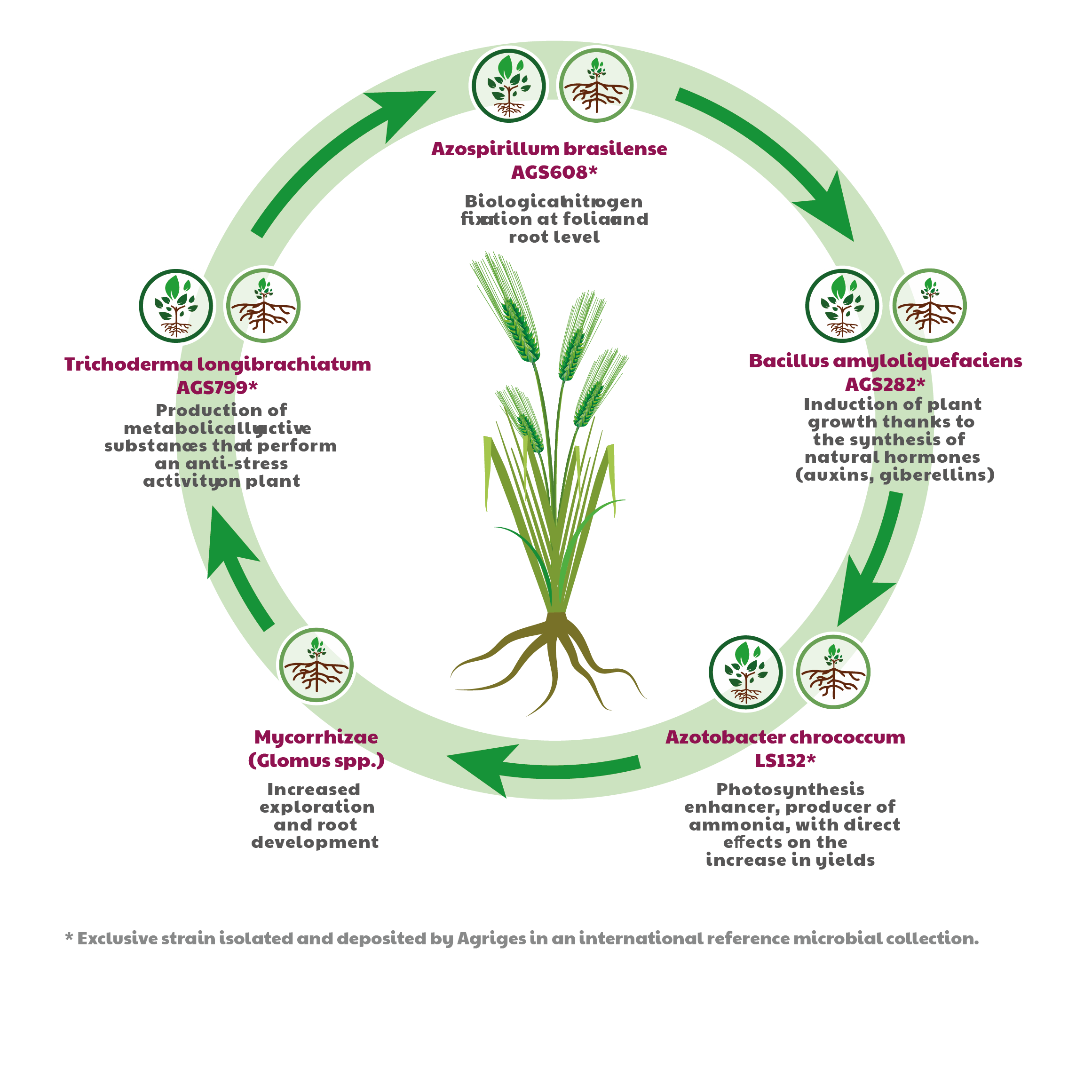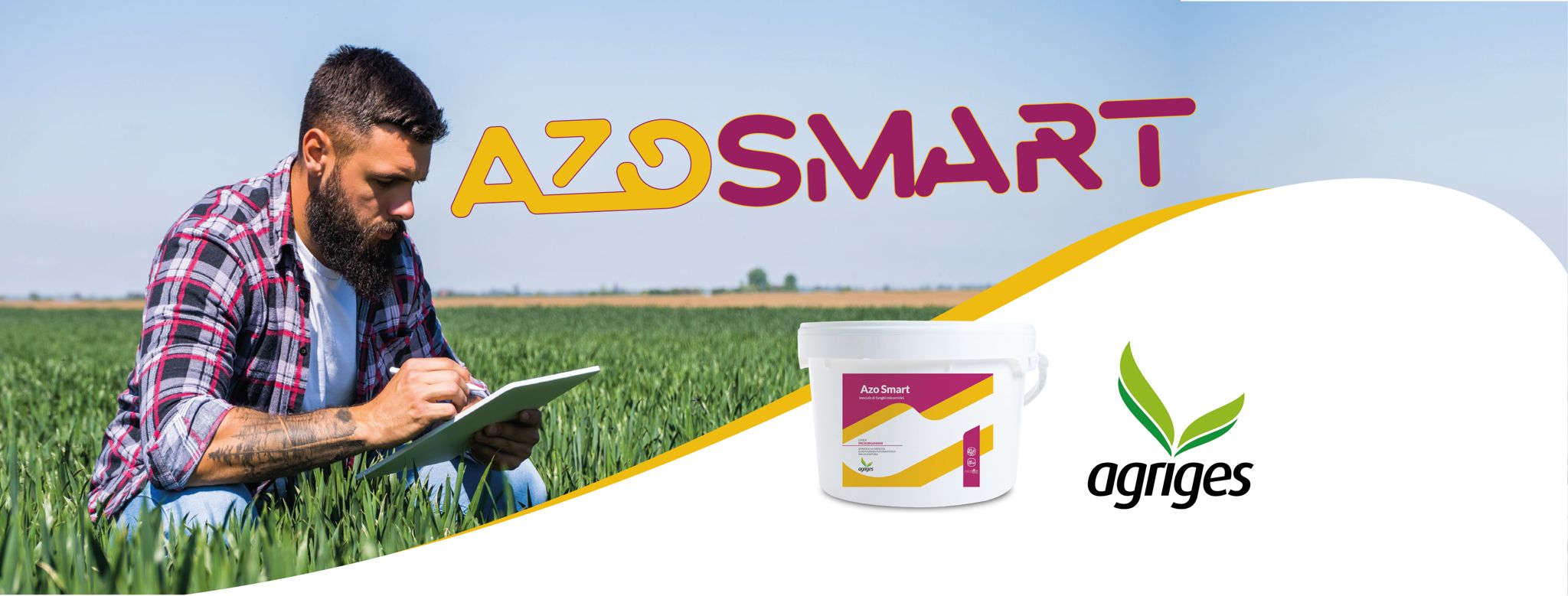Azo Smart, producing more with less, new challenges of the agriculture of the future
The new challenges of the agriculture of the future and the guidelines of the UN and the European Union
War, pandemics, global warming, and climate change are irreversibly transforming the fate of the planet, and agriculture is undoubtedly one of the sectors most affected by the consequences of these phenomena; it is necessary to adapt and respond promptly to the inevitable new 'challenges' the agricultural sector is facing.
The sharp rise in the prices of means of production, increasingly dramatic climatic adversities, the scarcity of certain production factors and the need to continue to produce abundantly while maintaining ambitious standards of quality, safety and healthiness of the finished products are the main critical issues faced by farmers today.
The United Nations and the European Union both have dictated guidelines for addressing the above issues.
In detail, the UN 2030 Agenda, under Goal 2 “To end hunger, achieve food security, improve nutrition and promote sustainable agriculture”, at 2.3 and 2.4 states: “By 2030, to double agricultural productivity (...) to ensure sustainable food production systems and implement resilient agricultural practices that increase productivity and production, help protect ecosystems, strengthen resilience to climate change, extreme weather, drought, floods and other disasters, and progressively improve soil quality.” As it aims to: “Adopt measures to ensure the proper functioning of markets for food commodities and their derivatives and facilitate rapid access to market information, including food stocks, in order to help limit extreme instability in food commodity prices.”
Meanwhile, the European Union has published the 'From Farm to Fork' strategy, the 10-year plan developed by the European Commission to guide the transition to a fair, healthy, and environmentally friendly food system, it envisages redesigning the European food system to make it sustainable in several respects and with less impact on third countries.
The strategy in particular envisages:
- halving the use of agrochemicals, further reducing those most harmful to the environment and human health;
- reducing the excessive use of nutrients in agriculture, cutting soil nutrient losses by 50% and fertiliser use by 20%, because less demanding agriculture will lead to less land exploitation and a reduced need for supplements for plant development;
- allocating 25% of agricultural land to organic farming, an action that goes along with the three mentioned above.
For the coming years, therefore, the formula will be 'produce with less but more' and concrete answers to these imperatives are needed.
The commitment of Agriges
Agriges has been trying for years to find concrete solutions to the needs of modern agriculture and does so through its Green Path project with which it commits to the development of solutions that maximise crop production results and are sustainable for the environment and safe for the final consumer.
It is as part of this project that the product Azo Smart was created and developed, being a microbial formulation based on a consortium of microorganisms isolated and registered by Agriges as part of an international reference microbial collection. Azo Smart is more than an ordinary nitrogen-fixing bacteria product because it contains a microbial complexity that enables it to perform multiple beneficial activities for the plant.
The micro-organisms Azotobacter chrococcum LS132 and Azospirillum brasilense AGS608 are free nitrogen-fixers that make nitrogen available to plants by reducing the amount of nitrogen to be supplied to the soil, thus preventing losses through leaching, immobilisation, and volatilisation, and increasing the proportion of this element available directly for plant metabolism.
Bacillus amyloliquefaciens AGS282 is a heat-resistant bacterium that promotes plant development and has a direct bio-stimulating action on the plant, also giving it greater resistance to abiotic stresses.
Trichoderma longibrachiatum AGS799 is a fungus with extraordinarily strong adaptive capacities and a remarkable growth speed that increases the plant's uptake of water and nutrients and gives it greater resistance to exogenous stresses.
Finally, the presence of mycorrhizae of the genus Glomus increases the volume of soil explored by the plant and thus the efficiency of water and nutrient uptake; it is also instrumental in increasing the share of phosphorus absorbed by the root system.

Azo Smart, as an Agriges product, is born out of the rigour of scientific investigation, respect for the environment and the user, and is the practical answer to specific field problems.




